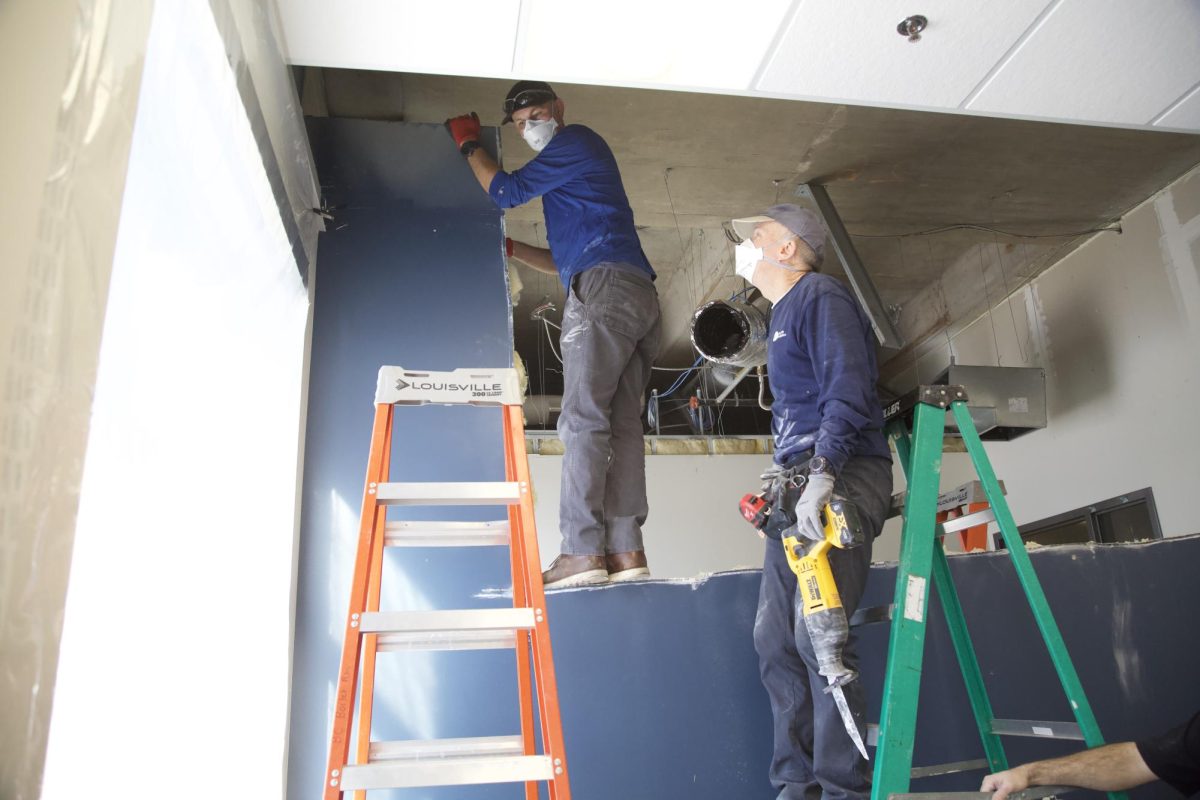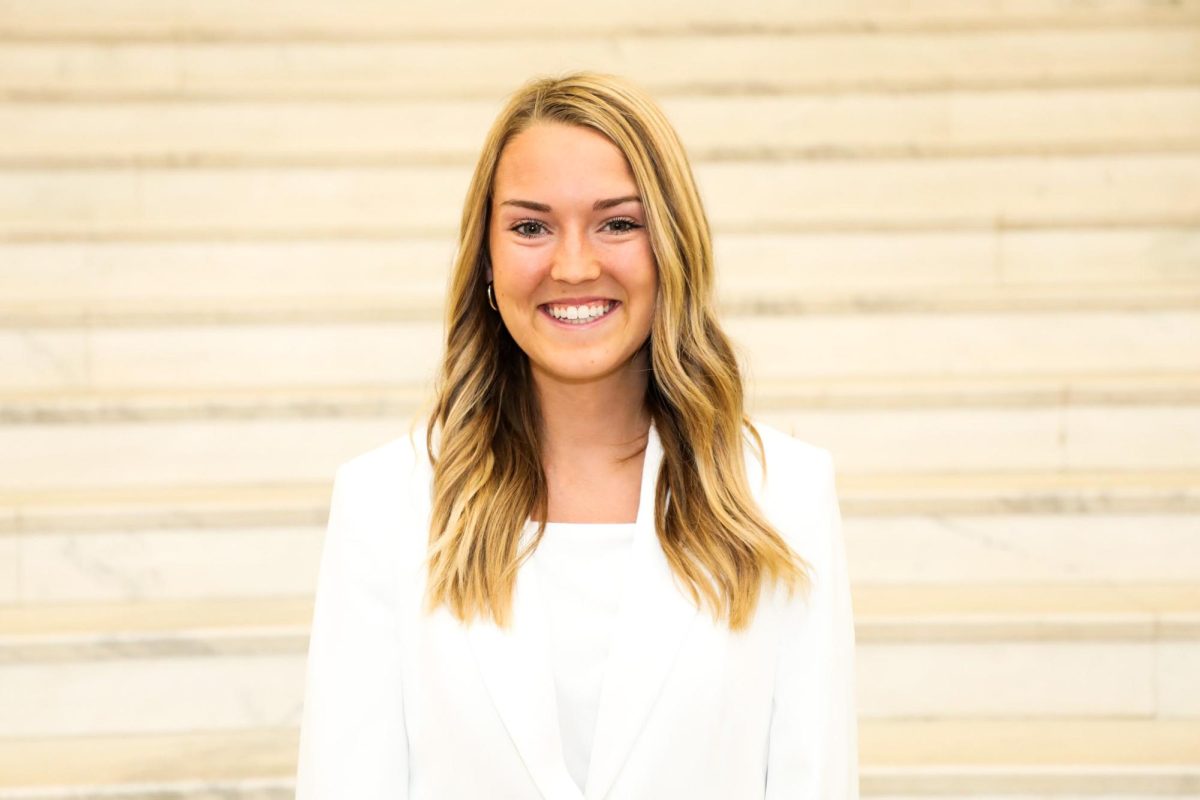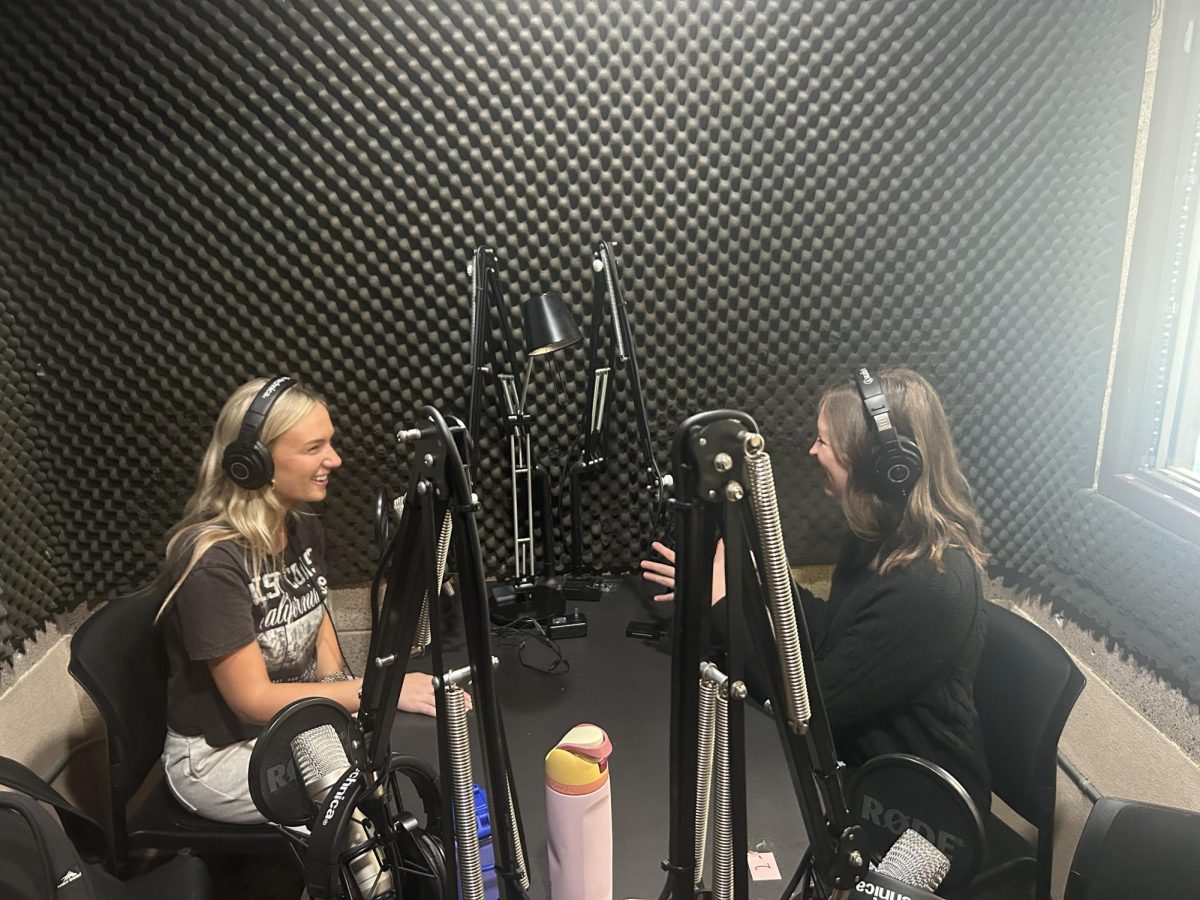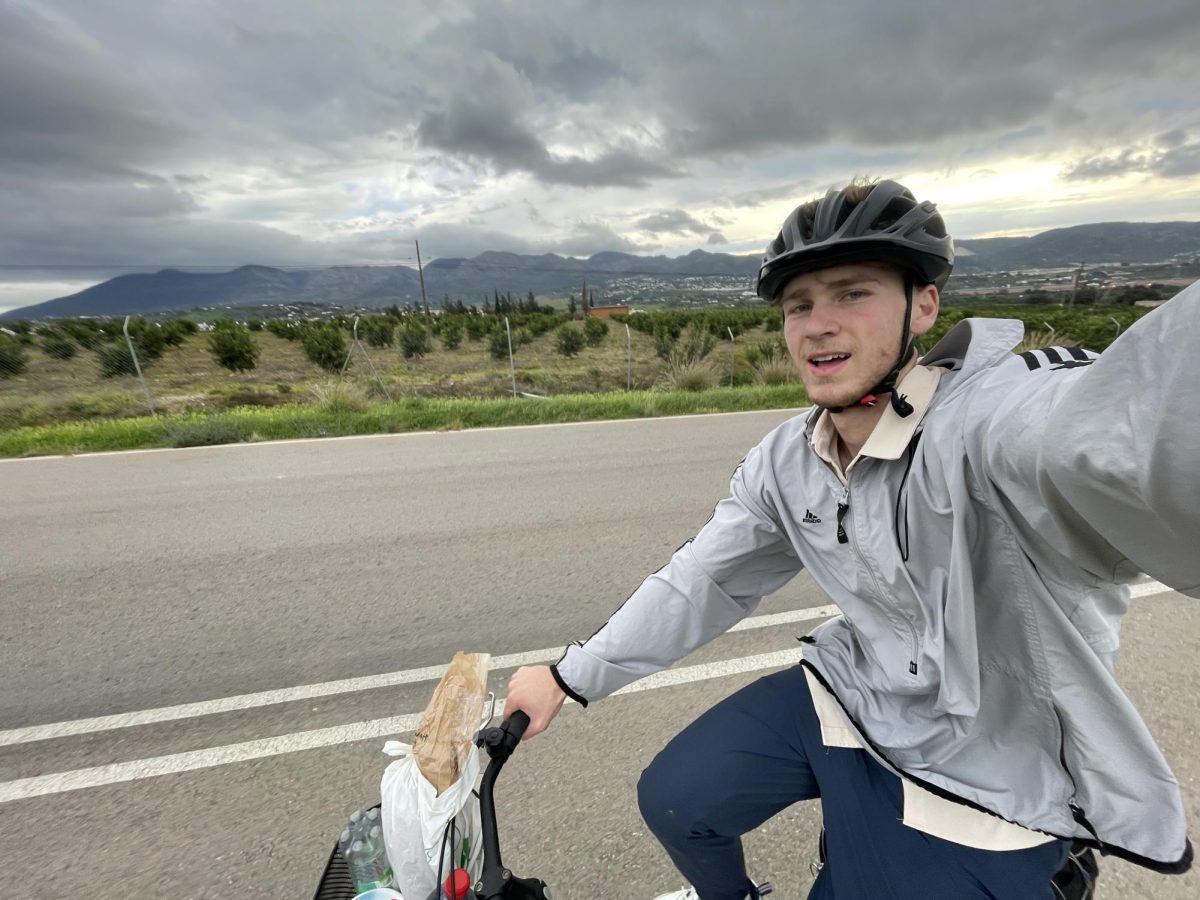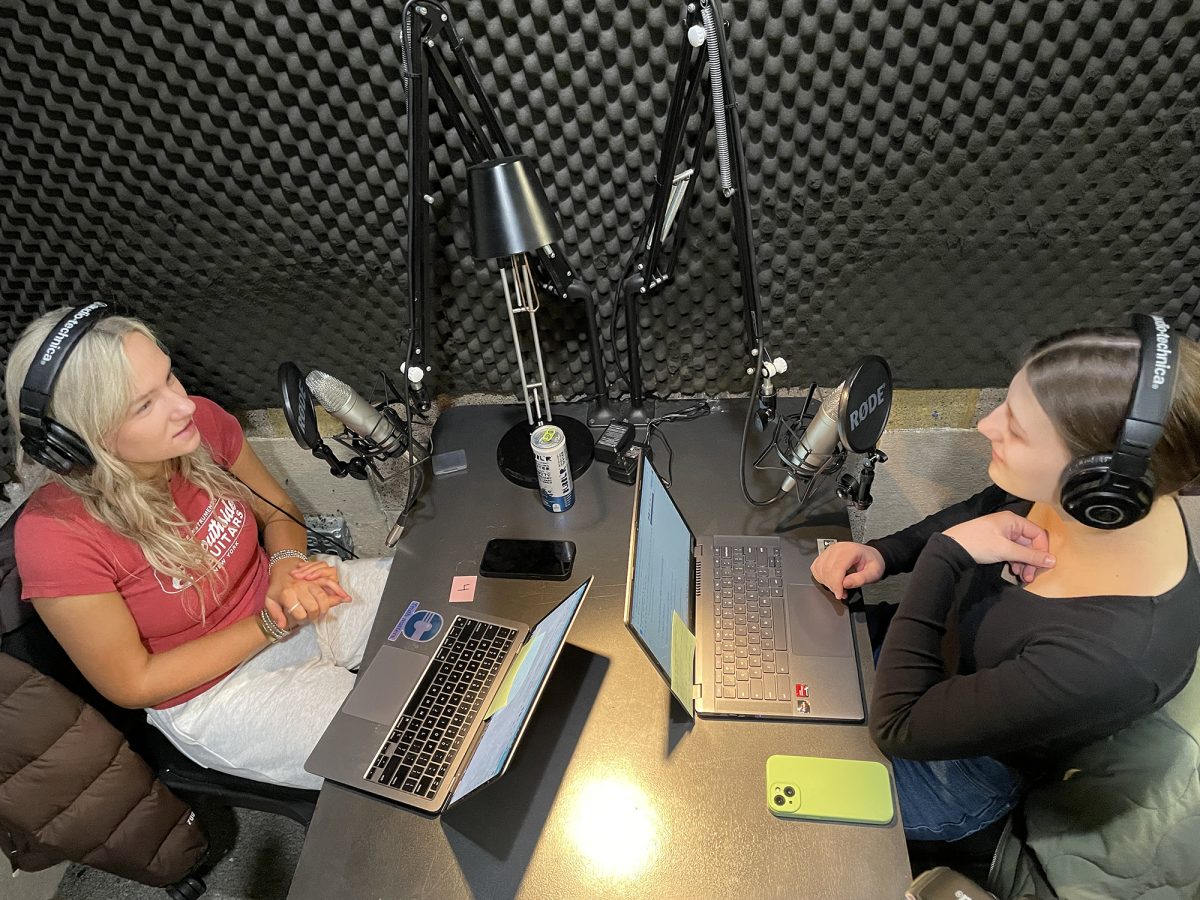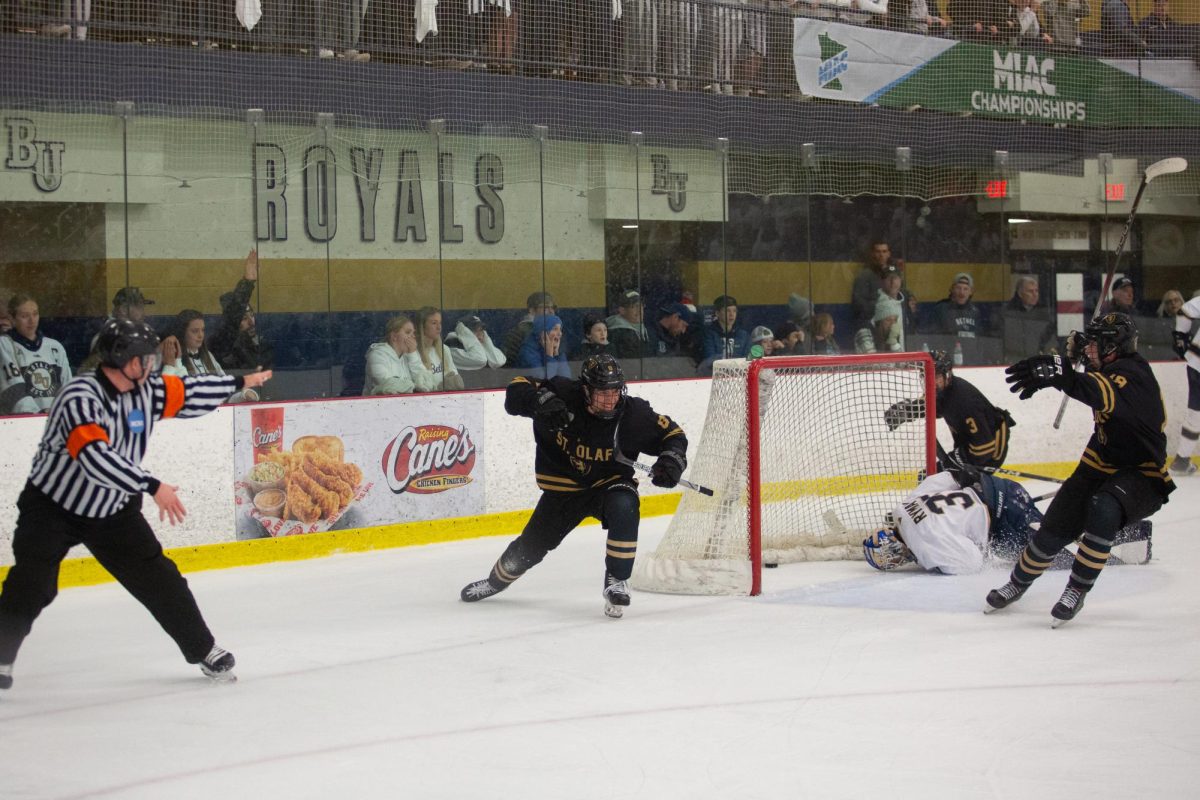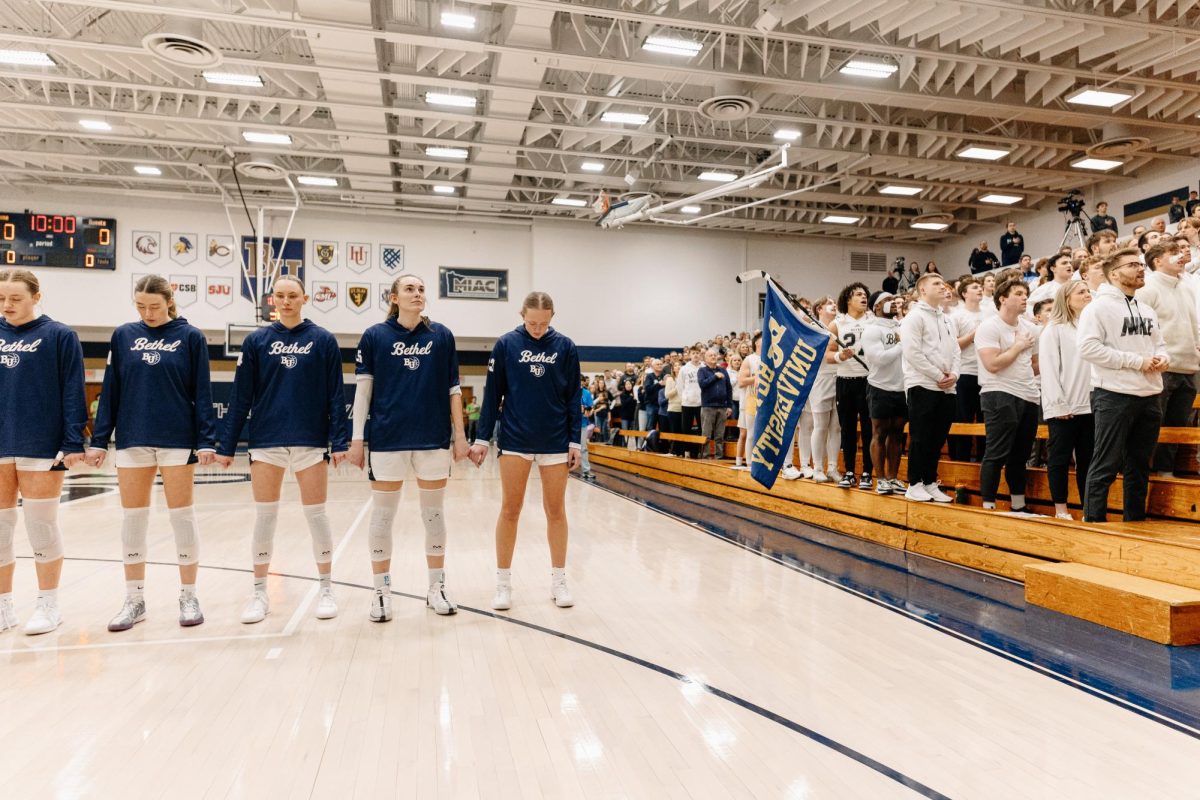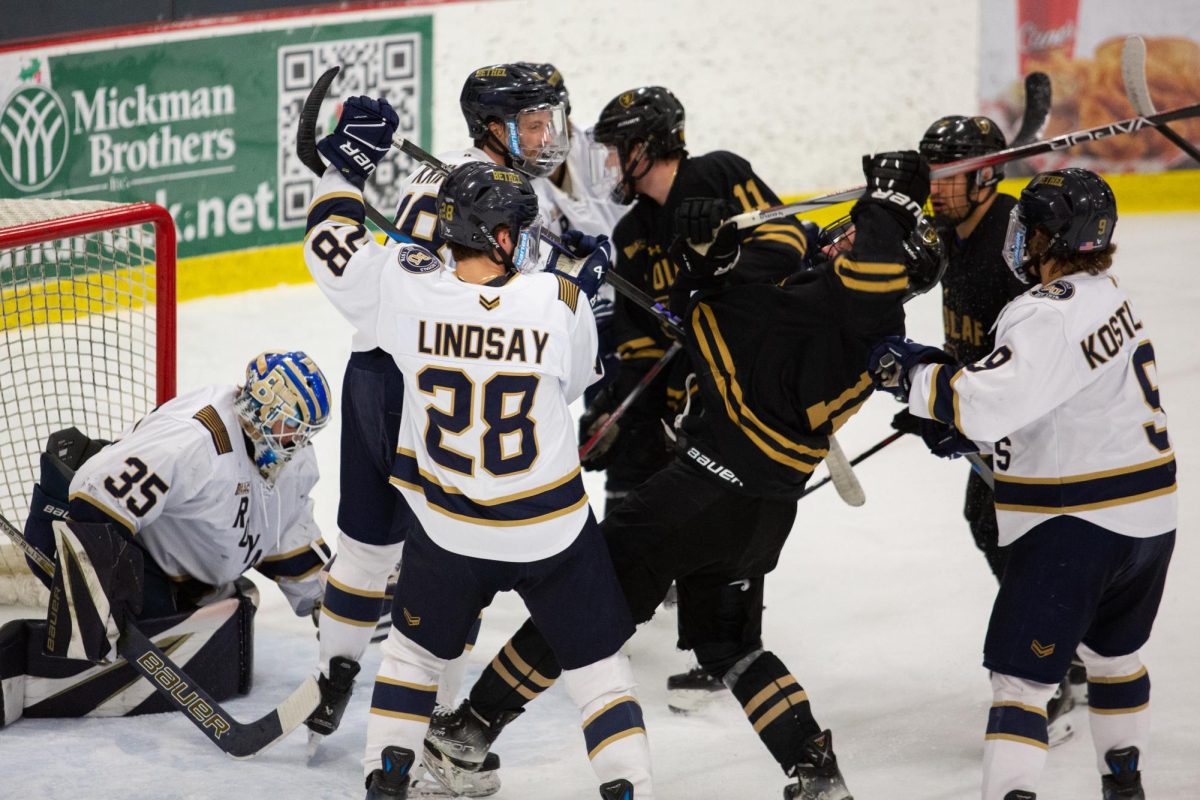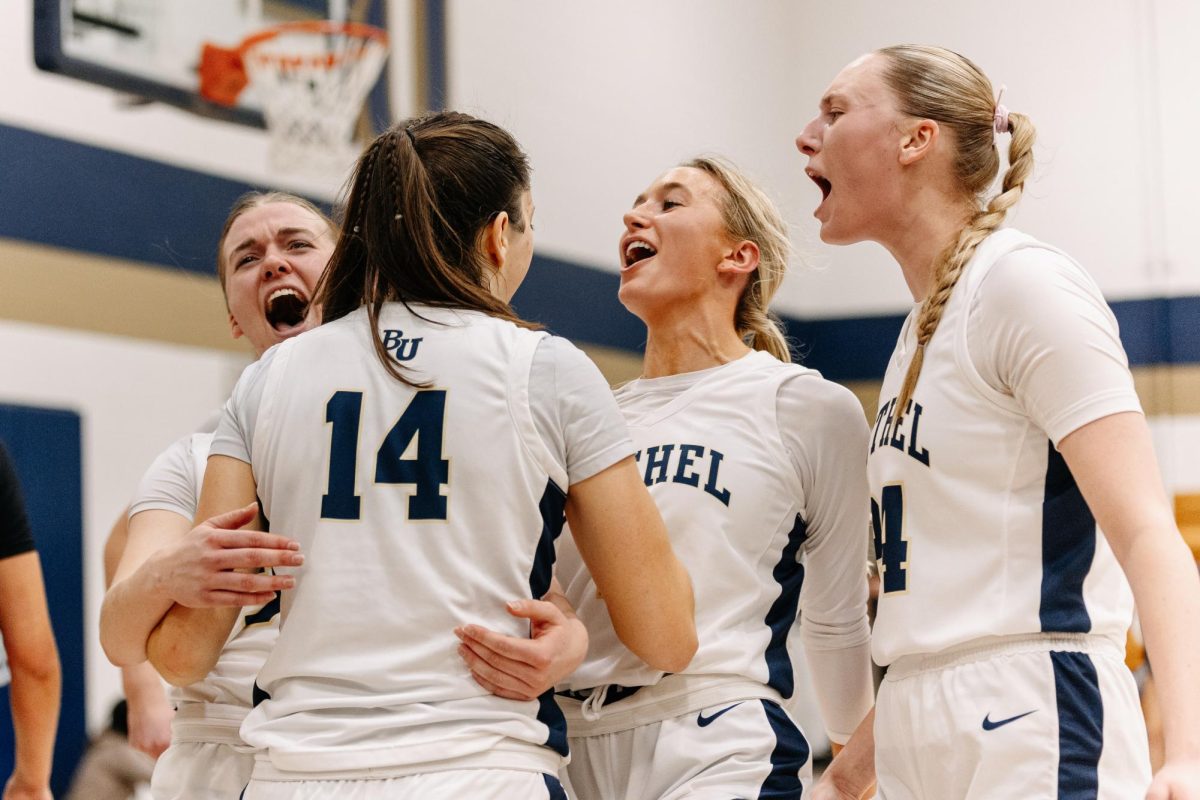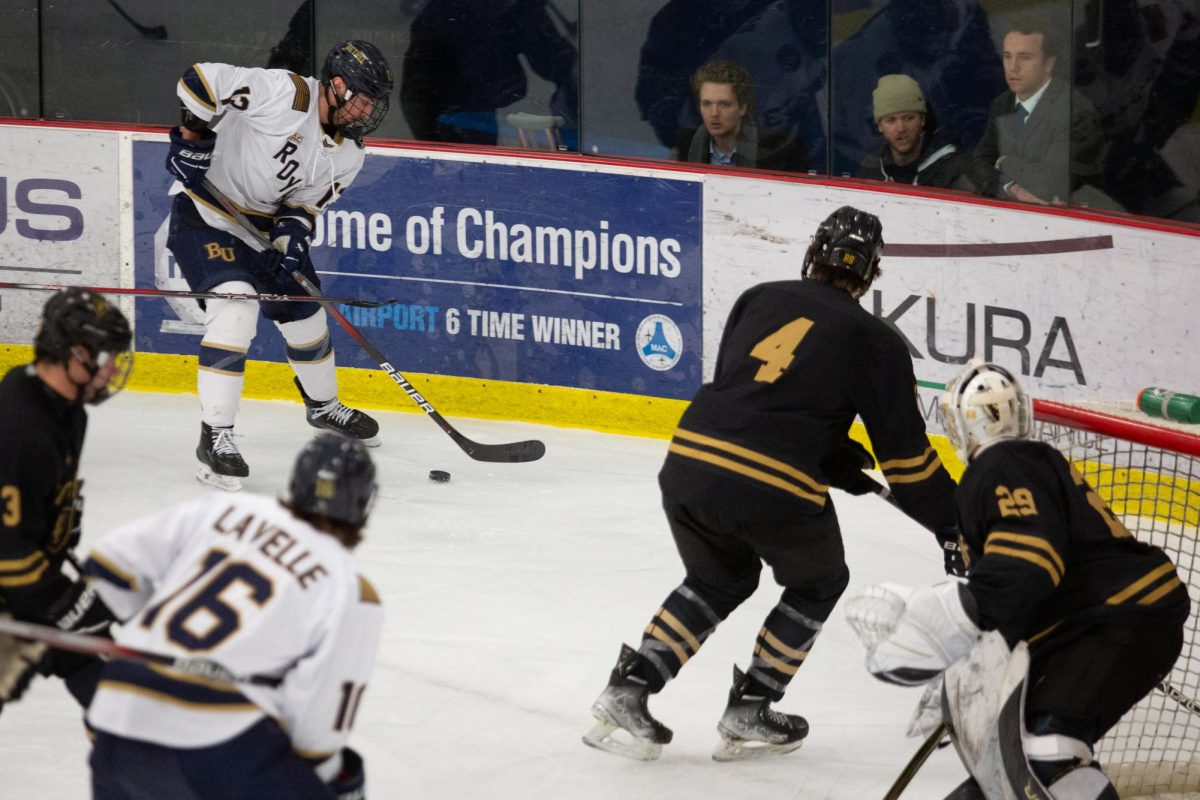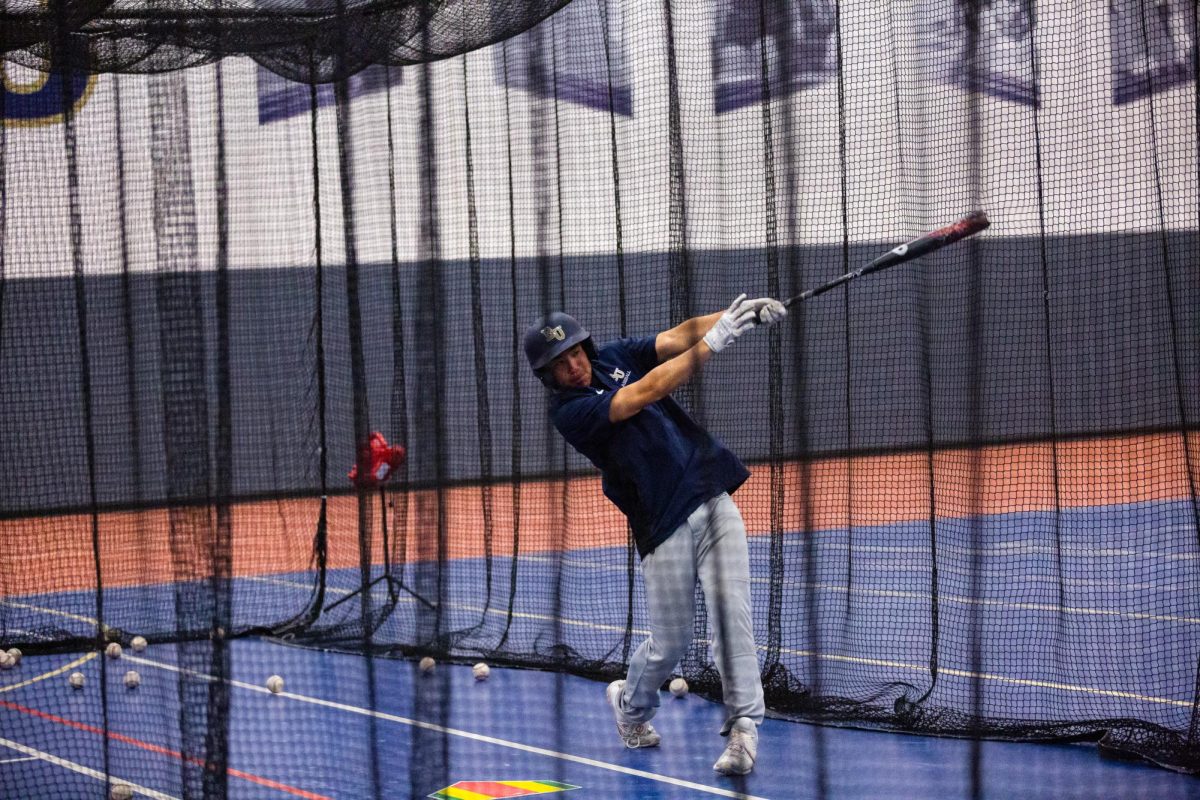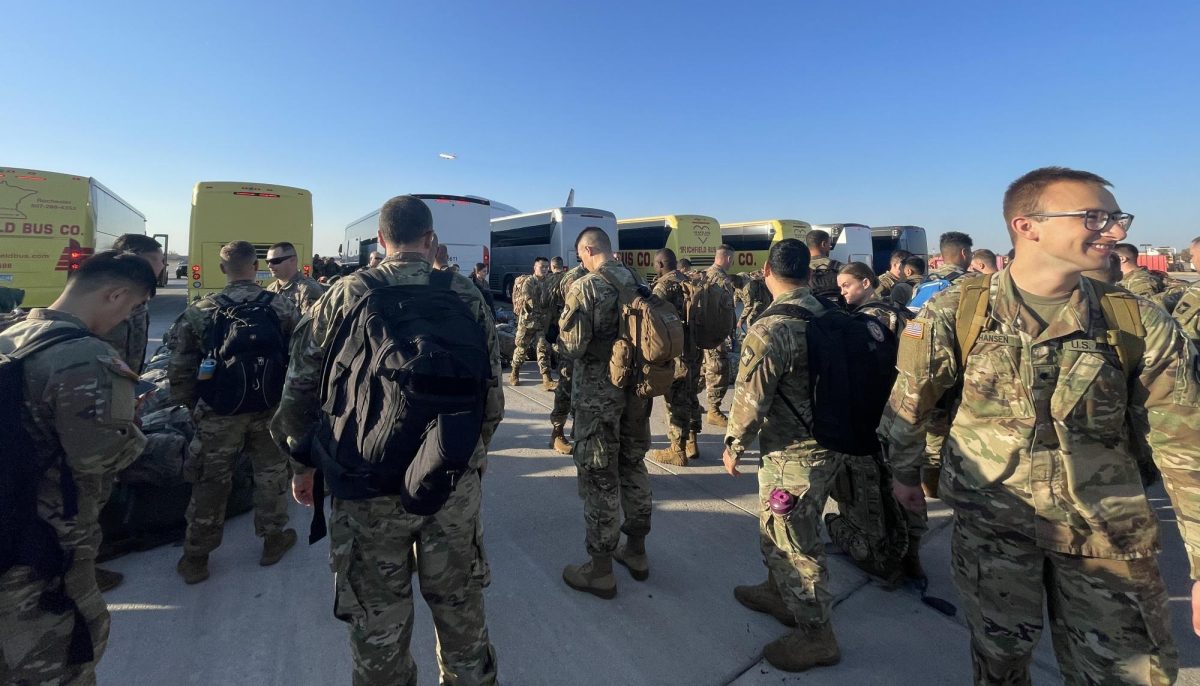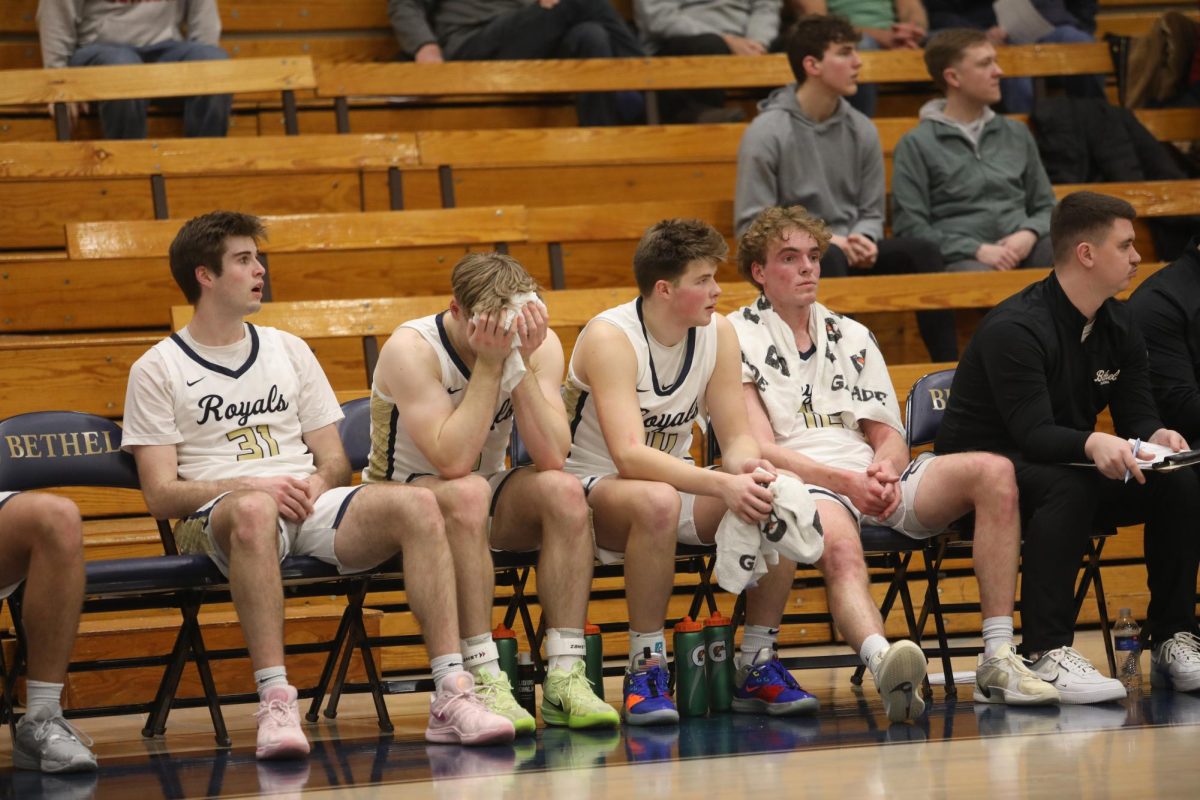Bethel University freshman Nainoa Hayashi fields the two-hop ground ball at third base and fires it toward freshman second baseman Loren Owan. Owan completes the around-the-horn double play with a throw to first during infield drills. It’s 8 p.m. on a Friday night, but instead of hanging out playing video games in their dorm, Hayashi and Cannon are at baseball practice in the Sports and Recreation Center.
The pair are more than just a double play duo, however. Hayashi and Owan, along with Chris Cannon — who mans shortstop between them — are the three members of the team who hail from the island of Oahu, Hawaii.
The Bethel baseball team sits at a 7-6 record, having just returned from their annual spring break trip to Davenport, Florida. Riding high off an 18-8 victory over ninth-ranked Johns Hopkins University, the team looks to carry that momentum into their first conference matchup with Macalester College and defend their MIAC crown.
Owan grew up in Mililani, Oahu, and began playing baseball at 5 years old. He played high school baseball at Leilehua High School, where he earned Second Team West Division honors his junior and senior year and, in his senior season, was invited to play in the senior all-star game against other top Hawaiian high schoolers.
Owan nearly attended Pacific University in Forest Grove, Oregon, until Bethel Baseball Operations and Assistant Coach Chad Richards looked at his recruiting profile and got in contact with him. The two emailed back and forth, and in mid-February Owan finally made the trip out to Bethel for a visit, tour and overnight stay.
Hayashi and Cannon began playing together in seventh grade and continued to be teammates all the way through high school at Mid-Pacific Institute in Honolulu. While attending Mid-Pacific, the two pushed each other in the weight room and on the field.
“Our junior and senior year, me and him would be the last ones to leave the field. We were hitting and throwing with each other,” Hayashi said. “So it’s good to come here, because he’s a guy that can push me to be better in every aspect of the game.”
Hayashi faced an uphill battle on his way to college baseball. With a crowded infield heading into his junior season, Hayashi was forced to move to the outfield in order to crack the varsity roster. To make matters worse, Hayashi tore the labrum in his throwing shoulder that sidelined him for his entire junior season, with a grueling six-to-eight month recovery period to follow.
The injury limited Hayashi’s ability to seek out potential programs. Videos are a key part of the recruiting process for Hawaiian ballplayers. Distance and travel costs limit the amount of in-person scouting coaches do on the island, meaning Hawaiian players often have to travel to large tournaments in hopes of being seen by coaches. Players also may have to seek out college programs on their own by making contact and sending video independently.
“[College coaches would] rather drive to an event with thousands of kids than fly to Hawaii to see two or three,” Owan said.
Upon returning to the field his senior season, Hayashi started the first three games in the outfield, but after struggling at the plate early on, his playing time began to dwindle. As Hayashi felt the prospect of college baseball slip away, Cannon urged him to get in contact with Head Coach Brian Raabe at Bethel.
“We’ve always had this rivalry in high school where we always tried to work harder than each other,” Cannon said. “So I thought it could help us out if I brought him here.”
Once Hayashi got in contact with the coaches at Bethel, Raabe contacted Cannon to ask him about his high school rival and Cannon remarked on his teammate’s work ethic. After a visit to Bethel in February 2023, the pair made the move to further their baseball careers and education in a place they never imagined they’d end up: Minnesota.
Figuring he would end up at a school on the West Coast, Cannon never considered Bethel’s initial offer despite wanting to venture off the island.
“Bethel was probably the bottom of my options because I got offers from other schools I visited,” Cannon said. “But then I came here and talked with Coach Raabe, and I left the school thinking it was really special.”
For Hayashi and Cannon, the journey to Bethel comes at a cost. The distance and expensive plane tickets make going home a lot more difficult.
“A lot of people that come to Bethel are already living in Minnesota, so they can drive home,” Hayashi said. “But then for me, it’s almost $1,000 to fly there and back.”
In addition to being so far from home, the difference in climate requires an adjustment. Instead of enjoying the sunshine and warm weather of the island, they have to deal with Minnesota’s negative temperatures and spring snowstorms.
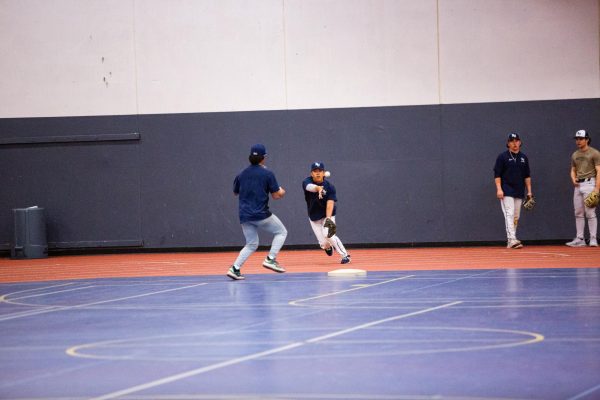
“The weather’s the biggest thing,” Cannon said. “Sometimes I feel like my hand went numb and it’s hard to throw a baseball.”
The climate in Hawaii makes it easy to practice outdoors on the field year-round, while Minnesota winters force the team into the SRC. During the team’s indoor practice session, Hayashi and Cannon feed each other balls on the pitching machine as the crack of the bat rings off the SRC’s concrete walls. Outside, three inches of fresh snow cover the ground after a late March storm with another slated for Sunday night, putting the first home doubleheader in doubt.
“I’m used to doing ground balls, fly balls and long toss outdoors,” Hayashi said. “Over here, we’re confined to the SRC and can’t do all those things.”
As a neuroscience major, Cannon uses his fascination with the brain as motivation for dealing with the mental side of baseball. He understands that the challenges that come with practicing in a new environment will help push him out of his comfort zone and grow into a new person.
“In neuroscience there’s a lot of tools that give you the ability to want to do the hard things,” Cannon said. “And baseball is a very hard sport; you fail more than you succeed.”
Moving away from home gives Cannon the opportunity to grow outside of his family and close-knit baseball community. In school, he is learning to take responsibility for himself by waking up in time for his 8 a.m. chemistry class.
Without his family around, Cannon has learned the importance of taking responsibility for his own actions, whether that’s getting to class on time, being self-motivated or occasionally cooking for himself.
Despite all the differences between Minnesota and Hawaii, a common theme emerged for Cannon on the baseball field: the importance of doing the little things right. He wants to work hard on the fundamentals while focusing on the things he can control.
“We really focus on practicing the small things that people may overlook,” Cannon said. “And over here it’s almost the same as back home: run hard, always hustle. We focus on the things we can control.”
Beyond focusing on what he can control, Cannon is learning how to enjoy the challenges and use the present struggles as a way to learn for the future.
“One tool I learned was that when you’re in that moment of suffering, if you tell yourself, ‘I’m choosing to do this,’ then down the road it’ll be easier to do the hard things,” Cannon said.
Cannon and his fellow Hawaiian teammates continue to face challenges even after becoming acclimated to their new college, climate and team. As freshmen, they will have to work hard and hone their skills to crack a crowded Bethel roster and infield. Hayashi, Cannon and Owan line up with the other infielders four deep, taking one grounder after another, looking to get better in hopes of one day earning a starting spot in the varsity lineup.
Hayashi backhands a hot ground ball off the bat and in one motion fires a chest-high strike to the first baseman with the surgically repaired shoulder that nearly ended his career. Owan and Cannon take turns turning double plays at second and short, focusing on the small things, fundamentals and hard work that have gotten them to this point, waiting for whatever challenge comes next.


